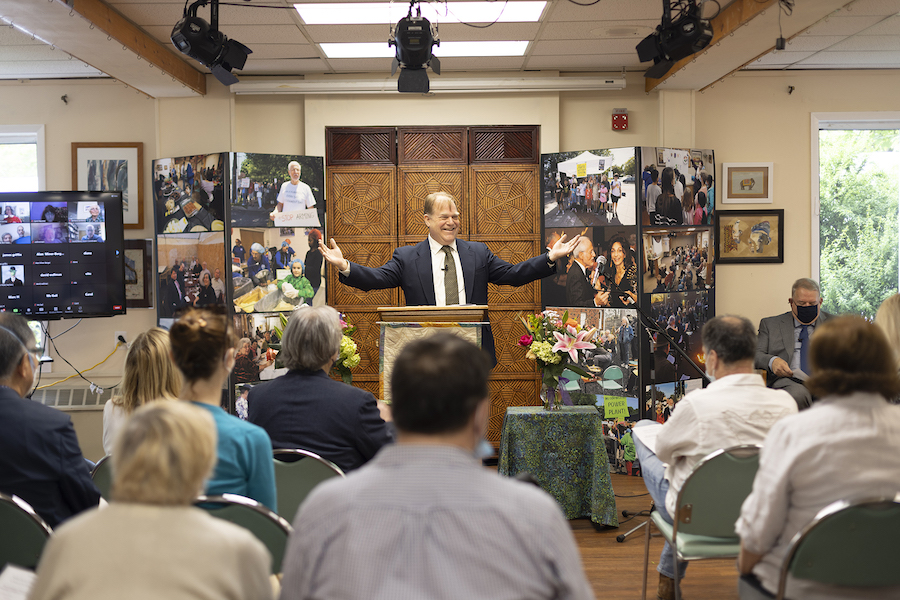By Eric Sandhusen

One of the good things about being president of the Ethical Culture Society of Bergen County is that I get to attend a lot of committee meetings (please accept that as 99 and 44/100ths irony-free). While this might not be your idea of fun, the committees are where a lot of cool activity happens.
It may be true that, really, we could manage with fewer and shorter meetings. But there have been some really interesting discussions in committees, especially as we re-invent our Society to align with new leadership, new external realities, and new energy and opportunities. We are getting into serious conversations about who we are, who we hope to become, what we seek to accomplish, and why. We are looking at what keeps us motivated to build upon the great foundation that has been made for us.
Is Ethical Culture a religion?
In this context, a fascinating question recently came up at a Gathering Committee meeting, in the course of re-imagining our Sunday morning experience. Central to our deliberations at that moment was the question: is Ethical Culture a religion, or not?

We ask this question from time to time, and it is usually followed by a (wide) range of opinions, especially on what we mean by “religion.” Some folks are in “religion recovery,” and will have nothing to do with anything that has even a whiff of it, not even a non-theistic variety. Others enjoy the rituals of celebrating the seasons, marking generational milestones, reveling in the mystery of life that surrounds them. Must religion be doctrinaire by definition, or can it be flexible enough to accommodate the many contemporary varieties of the human experience–including that of atheists, who make up a good portion of our members? Is being a religion, per se, what makes Ethical Culture different from any group of do-gooders who get together from time to time, for potlucks or topical discussion? And if being a religion does make a difference, what would that mean for each of us?
We recognize a religious impulse in our efforts
This is why I enjoy committee meetings! Because there are smart, committed people who will wrestle with questions like this, tease out their meaning and impact, and recognize a religious impulse behind their efforts to sustain our Ethical Culture community. This, in many ways, is what defines our humanness.
In other words, it’s pointless for me to ask whether Ethical Culture is a religion or not. The true question is whether it is MY religion. For me, Ethical Culture is not just a thing I do, it is a way I live. That is, living in nurturing community with fellow Society members, raising hope for people around the globe, caring and advocating for all life on the planet. This is what turns a vision into a mission.
Where humans are free to flourish
If you are a person for whom sustaining and growing this community is a religious calling–congratulations! You are getting the very best that Ethical Culture offers. You will work hard until you are happily tired. You will serve in ways that cause you to learn and grow (yeah, even unto speaking up in front of people, leading an enrichment program, or–egads!–joining a committee). You will give until it feels good. You will partake in the joy of seeing someone enter for the first time, or return after a long time, into the spiritual (or non-spiritual) home they may have been seeking for years.
If you haven’t already, I invite you make Ethical Culture your religion, and to find your fullest experience in the Bergen Society. We all wish to leave our descendants a world where people give generously in service to those in need, the love for justice and compassion abound, and humans are free to flourish. Co-creating a small but vibrant microcosm of this beautiful world now is the highest calling.
Eric Sandhusen is president of the Ethical Culture Society of Bergen County.
